Indicación de trasplante hepático en paciente con antecedentes de
Anuncio
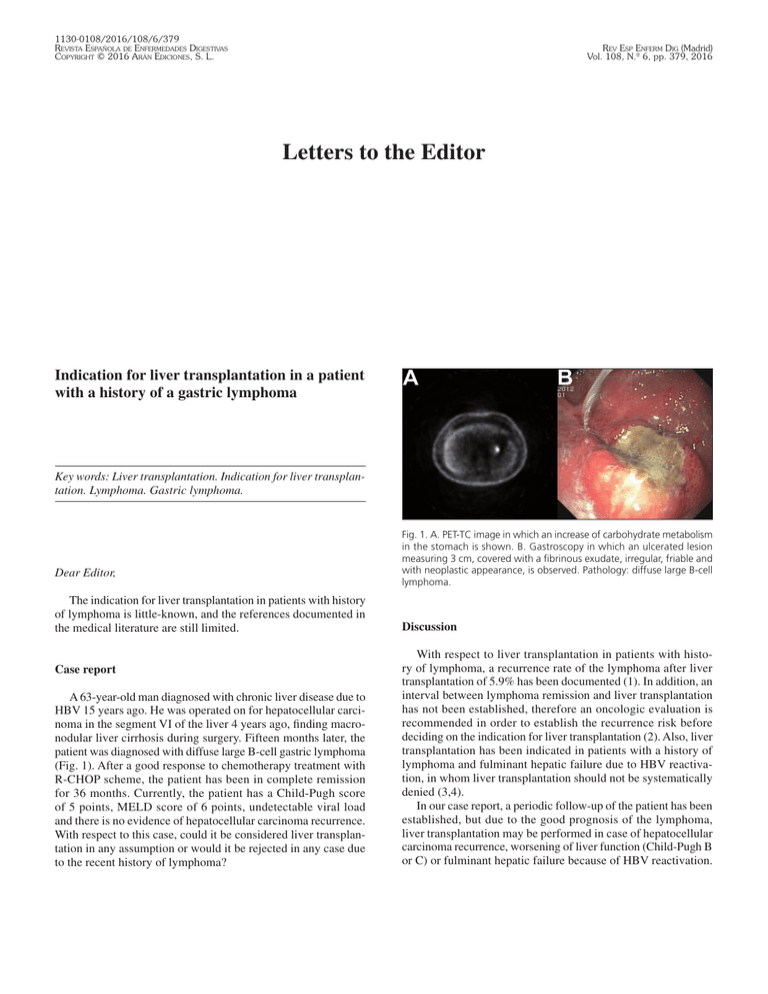
1130-0108/2016/108/6/379 Revista Española de Enfermedades Digestivas Copyright © 2016 Arán Ediciones, S. L. Rev Esp Enferm Dig (Madrid) Vol. 108, N.º 6, pp. 379, 2016 Letters to the Editor Indication for liver transplantation in a patient with a history of a gastric lymphoma Key words: Liver transplantation. Indication for liver transplantation. Lymphoma. Gastric lymphoma. Dear Editor, The indication for liver transplantation in patients with history of lymphoma is little-known, and the references documented in the medical literature are still limited. Case report A 63-year-old man diagnosed with chronic liver disease due to HBV 15 years ago. He was operated on for hepatocellular carcinoma in the segment VI of the liver 4 years ago, finding macronodular liver cirrhosis during surgery. Fifteen months later, the patient was diagnosed with diffuse large B-cell gastric lymphoma (Fig. 1). After a good response to chemotherapy treatment with R-CHOP scheme, the patient has been in complete remission for 36 months. Currently, the patient has a Child-Pugh score of 5 points, MELD score of 6 points, undetectable viral load and there is no evidence of hepatocellular carcinoma recurrence. With respect to this case, could it be considered liver transplantation in any assumption or would it be rejected in any case due to the recent history of lymphoma? Fig. 1. A. PET-TC image in which an increase of carbohydrate metabolism in the stomach is shown. B. Gastroscopy in which an ulcerated lesion measuring 3 cm, covered with a fibrinous exudate, irregular, friable and with neoplastic appearance, is observed. Pathology: diffuse large B-cell lymphoma. Discussion With respect to liver transplantation in patients with history of lymphoma, a recurrence rate of the lymphoma after liver transplantation of 5.9% has been documented (1). In addition, an interval between lymphoma remission and liver transplantation has not been established, therefore an oncologic evaluation is recommended in order to establish the recurrence risk before deciding on the indication for liver transplantation (2). Also, liver transplantation has been indicated in patients with a history of lymphoma and fulminant hepatic failure due to HBV reactivation, in whom liver transplantation should not be systematically denied (3,4). In our case report, a periodic follow-up of the patient has been established, but due to the good prognosis of the lymphoma, liver transplantation may be performed in case of hepatocellular carcinoma recurrence, worsening of liver function (Child-Pugh B or C) or fulminant hepatic failure because of HBV reactivation. 380 LETTERS TO THE EDITOR Rev Esp Enferm Dig (Madrid) References José Ruiz-Pardo, Pedro Antonio Cascales-Campos and Pascual Parrilla-Paricio Departments of General and Gastrointestinal Surgery. Hospital Clínico Universitario Virgen de la Arrixaca. El Palmar, Murcia. Spain 1. Benten D, Sterneck M, Panse J, et al. Low recurrence of preexisting extrahepatic malignancies after liver transplantation. Liver Transpl 2008;14:789-98. DOI: 10.1002/lt.21434 2. Sociedad Española de Trasplante Hepático. Consensus document of the Spanish Society of Liver Transplantation. Gastroenterol Hepatol 2008;31:82-91. DOI: 10.1157/13117010 3. Sperl J, Frankova S, Kieslichova E, et al. Urgent liver transplantation for chemotherapy-induced HBV reactivation: A suitable option in patients recently treated for malignant lymphoma. Transplant Proc 2013;45:2834-7. DOI: 0.1016/j.transproceed.2013.03.047 4. Kim JM, Kwon CH, Joh JW, et al. Liver transplantation in lymphoma patients with hepatitis B virus reactivation. Transplant Proc 2013;45:2988-91. DOI: 10.1016/j.transproceed.2013.08.085 Rev Esp Enferm Dig 2016; 108 (6): 379

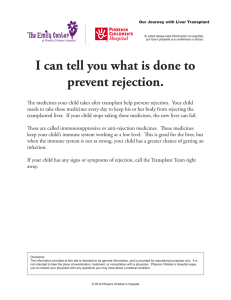
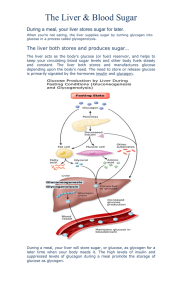
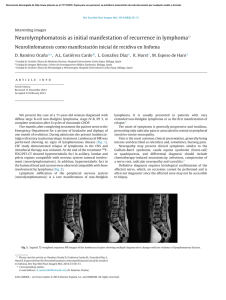
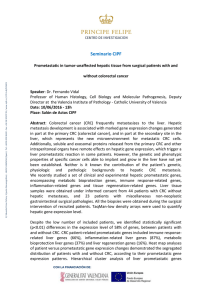
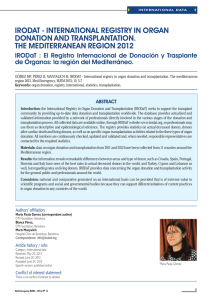
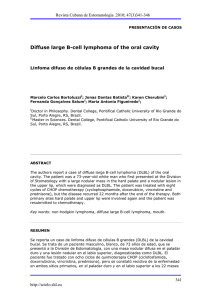
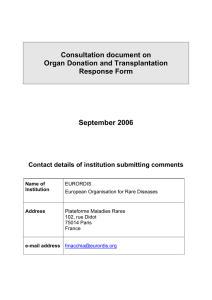
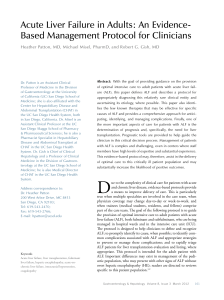
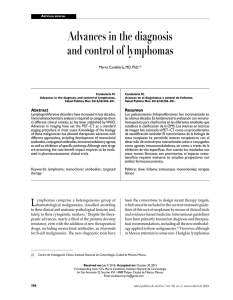
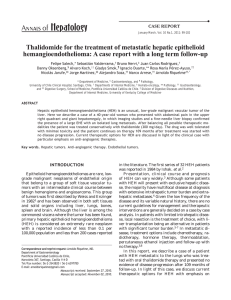
![[] Diabetes Mellitus, Obesity and Underlying Non Alcoholic Fatty Liver Disease - Independent Risk Factors for Hepatocellular Carcinoma](http://s2.studylib.es/store/data/008839203_1-639d2cfd5f7307c887258689d2f3b694-300x300.png)